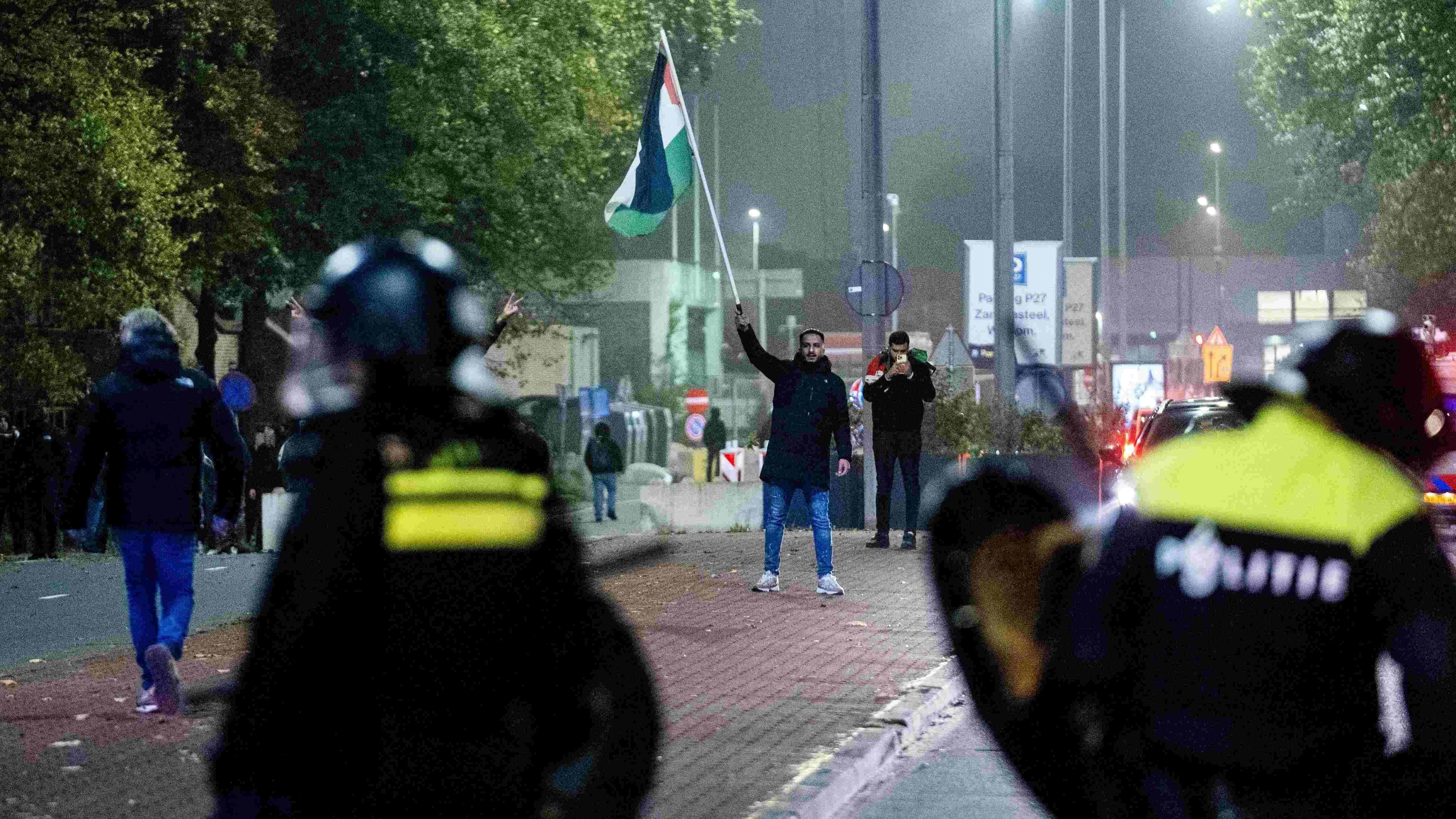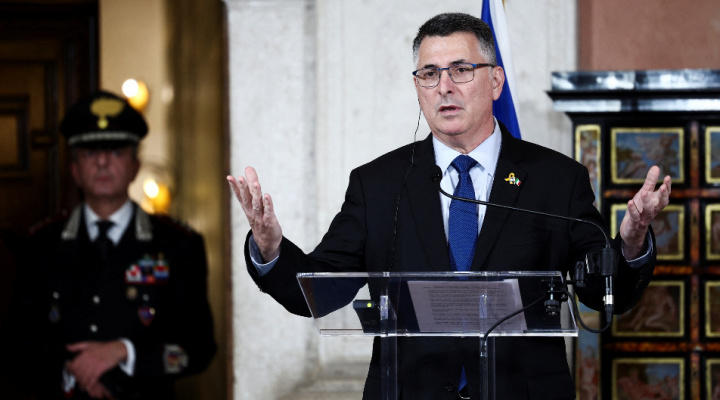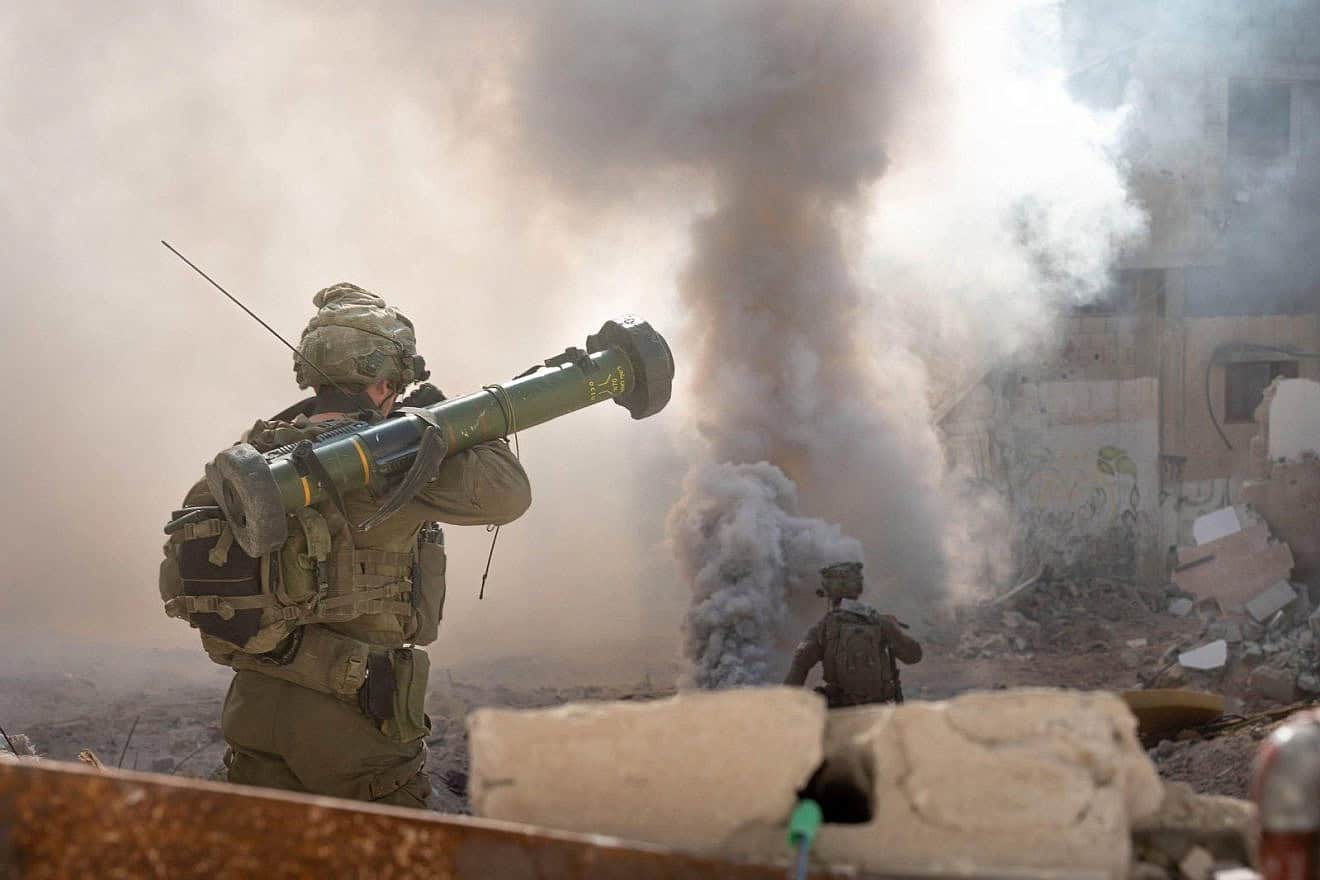 Polowanie na Żydów w Amsterdamie w listopadzie ubiegłego roku było jeszcze gorsze, niż myśleliśmy.
Polowanie na Żydów w Amsterdamie w listopadzie ubiegłego roku było jeszcze gorsze, niż myśleliśmy.
Brendan O’Neill Tłumaczenie: Małgorzata Koraszewska
Polowanie na Żydów w Amsterdamie w listopadzie ubiegłego roku było jeszcze gorsze, niż myśleliśmy.
Gdzie wypowiedziano te rasistowskie plugastwa? Gdzie przeprowadzono to brutalne polowanie na Żydów? Może w Niemczech w 1938 roku? Nie, to było w Amsterdamie, w zeszłym roku. To był jodenjacht z listopada 2024 roku, kiedy na odwiedzających izraelskich kibiców Maccabi Tel Aviv na ulicach Amsterdamu „polowały” tłumy, głównie Arabów. Więcej szczegółów na temat tego pogromu pojawiło się podczas rozpraw sądowych w zeszłym tygodniu i okryło jeszcze większą hańbą negacjonistów pogromów z zachodniej lewicy, którzy upierali się, że były to tylko uliczne starcia między kibicami, a nie polowanie na Żydów.
Pięciu kolejnych domniemanych łowców Żydów z Amsterdamu znalazło się na ławie oskarżonych w zeszłym tygodniu. Jeden z nich – 32-letni Mounir M. – jest oskarżony o administrowanie grupy WhatsApp, w której podżegano i organizowano przemoc. Początkowo grupa nazywała się „Free Palstine” (sic), później zmieniła nazwę na „Buurthuis 2” (po holendersku „Dom Kultury 2”). Wrogość rasowa i otwarte wezwania do przemocy kłębiły się na tym złowrogim czacie. „Najedź samochodem ‘na tych ludzi’”, powiedział jeden z uczestników. „Uderz ich mocno”, powiedział inny. Musi być „przynajmniej jedna śmierć”, marzy jeden z piszących. Były też wskazówki, jak prowokować fanów Maccabi. Krzycz do nich „Free Palestine”, doradzono tłumowi.
Mówi się, że Mounir M. pomagał nadzorować tę grupę, która kipiała nienawiścią do Żydów. Jak donosiła holenderska gazeta „Het Parool”, zeszłotygodniowe postępowanie sądowe „nie pozostawiało wiele miejsca dla wyobraźni: uczestnicy grupy… podżegali się nawzajem do polowania na Żydów”. Sąd usłyszał, że w grupa było pełno „obraźliwych słów o Żydach”, obok wezwań do działania. Były też „żarty”, jak ten o specjalnym pociągu Hitlera, w którym gazowano Żydów. Mounir M. jest oskarżony o najbardziej przerażającą reakcję na wiadomość o hotelu, w którym fani Maccabi schronili się przed atakami łowców Żydów. „Zlikwidujcie go”, napisał podobno.
Inny podejrzany w obecnym procesie – Mahmoud A., palestyński azylant – stoi przed poważniejszym zarzutem: usiłowanie zabójstwa. Na nagraniu wideo widać, jak kopie zwolennika Maccabi w głowę cztery razy, gdy ten leży na ziemi. Trzech pozostałych podejrzanych oskarża się o „udzielanie informacji w celu popełnienia przemocy”, trywializację i przyzwolenie na Holokaust oraz użycie pasa do wychłostania starszego Izraelczyka odwiedzającego kraj. Holenderska gazeta „De Telegraaf” napisała pod koniec zeszłego tygodnia, że ten ostatni „proces łowców Żydów” „poważnie wstrząsnął” mieszkańcami Holandii. To przerażające, jak stwierdziła, że wydarzenie o tak „wyraźnie antysemickim charakterze” mogło mieć miejsce we współczesnym Amsterdamie.
Czy poza Holandią jest również „szok” z powodu tego procesu podejrzanych łowców Żydów? Z powodu tego mrożącego krew w żyłach pogromu, który sąd bada w 2025 roku? Co ciekawe, nie. Panuje cisza. Na próżno będziesz szukać relacji w prasie nieholenderskiej o rozwoju sprawy pogromu w Amsterdamie. Czy europejska prasa jest znudzona tą historią o Żydach ściganych na ulicach europejskiej stolicy? Tak, cóż za uciążliwość, że możemy mieć do czynienia z faktem, że na naszym kontynencie w XXI wieku miało miejsce zorganizowane i brutalne polowanie na „rakowatych Żydów”. W końcu Europa ma być wzorem liberalizmu i różnorodności, a także jest o wiele bardziej moralnie wyższa od tych populistycznych głupców, którzy przejęli władzę w Ameryce. Nie możemy pozwolić, aby taka uprzykrzona drobnostka jak polowanie na Żydów zakłóciła tę narrację.
Istnieje jeszcze bardziej złowrogi powód milczenia Europy w sprawie tego „procesu łowców Żydów” w jednym z naszych najbardziej oświeconych miast. Wielu wyraźnie uwierzyło w negacjonizm pogromów, który rozprzestrzenił się jak zaraza w kręgach opiniotwórczych tuż po ulicznym polowaniu na Żydów. Zachodni lewicowcy poświęcili tyle samo energii moralnej na zaprzeczanie prawdzie o pogromie w Amsterdamie, ile zwykle poświęcają na ujawnianie rasizmu absolutnie wszędzie. Ci sami ludzie, którzy przez lata potępiali wszystko, od białych kobiet noszących afrykańskie warkoczyki po poplamienia strony w Koranie, jako „rasizm”, teraz wzruszają ramionami nad autentycznym polowaniem na Żydów. W zasadzie powiedzieli: „Może kibice Maccabi sami to na siebie ściągnęli”.
Dla racjonalnego obserwatora od początku było jasne, że to, co wydarzyło się w Amsterdamie, było pogromem. Pierwszy „proces łowców Żydów” odbył się w grudniu. Pięciu mężczyzn skazano za przemoc. Jeden z nich chwalił się w grupie WhatsApp, że dołączył do „polowania na Żydów” – jego słowa. Później kopał fanów Maccabi i złapał jednego za gardło. Inny opisał swoje ofiary jako „tchórzliwych [Żydów]”. Mężczyźni ci, wraz z około 900 innymi, brali udział w wirtualnym czacie, który, jak usłyszał sąd, dzielił się informacjami w celu „przemocy wobec osób pochodzenia żydowskiego i/lub zwolenników Maccabi Tel Awiw”. Czterech z pięciu mężczyzn skazano na karę więzienia, jeden otrzymał nakaz prac społecznych.
Więc wiemy od końca zeszłego roku, że tłum w Amsterdamie nazwał swoje nikczemne przedsięwzięcie „polowaniem na Żydów”. Wiemy, że podżegali się nawzajem do „pobicia paru pieprzonych Żydów” . Wiemy, że paplali o oczyszczeniu Amsterdamu z tego „raka” Żydów. Wiemy z procesów z zeszłego tygodnia, że żartowali też z Holokaustu, przywoływali Hitlera, śmiali się z uśmiercania gazem, podobno pobili Izraelczyka pasem i podobno przeprowadzili próbę zabójstwa. Wszystko to z „wyraźnie antysemickim charakterem”, jak napisała gazeta „De Telegraaf”.
A mimo to lewicowcy nadal twierdzili, że to nie był pogrom. Nadal widzieliśmy nagłówki takie jak „Pogrom w Amsterdamie, którego nie było”. Nadal mówiono nam, że kibice Maccabi mieli na to zasłużyć, ponieważ krzyczeli obraźliwe hasła i zerwali flagę Palestyny. Ci kibice przynieśli „ducha izraelskiego faszyzmu” do Holandii, powiedział jeden z obserwatorów, a ludzie w Amsterdamie po prostu się bronili. To było obwinianie ofiar na sterydach, tak groteskowe, jak wtedy, gdy antysemici mówili, że Żydzi z Niemiec sami sprowadzili na siebie Kristallnacht, bo destabilizowali gospodarkę. Nic lepiej nie podsumowuje turbo-zadowolenia z rasizmu współczesnej lewicy niż fakt, że gangi mężczyzn powiedziały „Przeprowadziliśmy polowanie na Żydów!”, a ci ludzie po prostu odpowiedzieli: „Nie, nie zrobili tego. Oni tylko protestowali. Chwała im”. Oni nie tylko wiedzą lepiej niż Żydzi, wyraźnie wiedzą także lepiej niż sami sprawcy.
Bezlitosny cynizm tak wielu obserwatorów po pogromie w Amsterdamie obnażył neorasistowskie okrucieństwo polityki tożsamości. Ich wypaczone przekonanie, że Żydzi nigdy nie mogą być ofiarami, podsycało ich zaprzeczenia, że było to polowanie na Żydów. W końcu Żydzi należą do „uprzywilejowanych”, a arabscy migranci należą do „uciśnionych”. I jak „uprzywilejowani” mogą cierpieć z powodu pogromu z rąk „uciśnionych”? Poświęcili prawdę o polowaniu na Żydów w Amsterdamie na ołtarzu ideologii. Rzucili Żydów wilkom na pożarcie w służbie własnego pełnego samouwielbienia światopoglądu. Wyparli ten pogrom z własnej pamięci, aby zachować swoją cnotę. Inni ludzie zrobili to samo w Europie 80 lat temu. Nie byli ani uczciwymi ani dobrymi ludźmi.
Zawartość publikowanych artykułów i materiałów nie reprezentuje poglądów ani opinii Reunion’68,
ani też webmastera Blogu Reunion’68, chyba ze jest to wyraźnie zaznaczone.
Twoje uwagi, linki, własne artykuły lub wiadomości prześlij na adres:
webmaster@reunion68.com





